
Venezuelan fishermen in fear after US strikes on boats in the Caribbean
2025-10-16 20:21:07
Gustavo Ocando AlexReporting from Maracaibo, Venezuela for BBC News Mundo
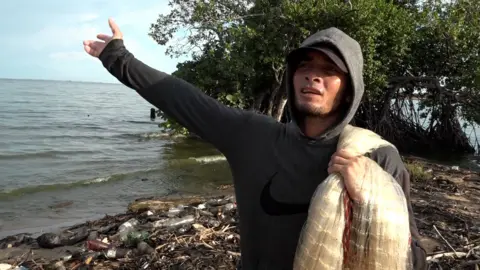 Gustavo Ocando Alex
Gustavo Ocando AlexWilder Fernandez caught four large fish in the murky waters of a cove north of Lake Maracaibo.
The contents of his net would serve as dinner for his little team before they set out to hunt again in the evening.
But this daily task is one he has recently become afraid to do.
After 13 years working as a fisherman, Fernandez admits he now fears his job will turn deadly.
He fears he will die in these waters not by an attacker in the night – a threat that fishermen like him have faced in the past – but killed in a strike by a foreign power.
“It’s crazy, man,” he says of the deployment of American warships, fighter planes, submarines and thousands of American troops in the waters north of the coast of Venezuela.
The US force’s patrols in the Caribbean form part of a military operation targeting suspected “narco-terrorists”, who according to the White House have links to the Venezuelan government led by Nicolas Maduro.
Since September 2, the United States has carried out a number of strikes against what it called “drug boats,” killing at least 27 people.
The United States accused the dead of drug smuggling, but has not yet provided any evidence. Experts noted that the strikes may be illegal under international law.
Tensions between the United States and Venezuela escalated further on Wednesday when US President Donald Trump said he was considering strikes on Venezuelan territory.
He also confirmed that he allowed the CIA to carry out covert operations inside Venezuela.
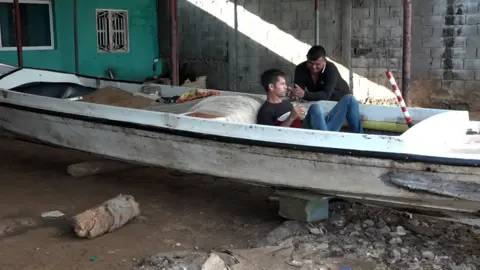 Gustavo Ocando Alex
Gustavo Ocando AlexMr. Fernandez is up to date with the latest news.
Although the United States says the strikes occurred thousands of kilometers from where he is fishing, his wife is trying to persuade him to leave Lake Maracaibo.
She begs him every day to quit his fishing job. “She asked me to look for another job, but there is nowhere to go,” he explains.
He does not rule out the possibility that his boat was hit “accidentally.”
“Of course it worries me, you never know. I think about it every day, man,” says the father of three.
A day after BBC Mundo spoke with Fernandez, Trump announced that “six drug-trafficking terrorists” had been killed in the latest US strike in international waters off the Venezuelan coast.
Trump added, “Intelligence confirmed that the ship was trafficking drugs, and was linked to illegal terrorist networks related to drugs.”
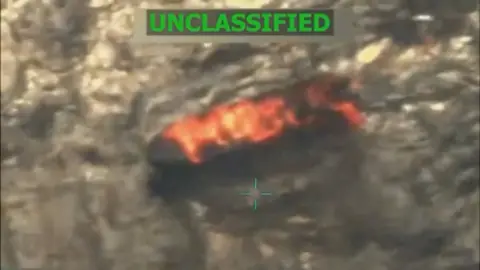 Reuters
ReutersThe Trump administration accuses Maduro of leading the Sun Cartel drug trafficking ring, and is offering a reward of $50 million (£37 million) for information leading to his arrest.
Maduro, whose legitimacy as Venezuela’s president has become internationally disputed after disputed elections last year, has denied the cartel’s accusations. He dismissed it as an attempt by the White House to remove him from office.
In his final statement, he called on television for peace with the United States.
Meanwhile, Venezuelan Defense Minister General Vladimir Padrino warned Venezuelans to prepare “for the worst.”
Speaking after five F-35 fighter jets intruded into Venezuelan airspace on October 2, General Padrino said his country faced a “serious threat” that he warned could include “aerial bombardment, a naval blockade, the landing of covert commandos on Venezuelan beaches or in the Venezuelan jungle, swarms of drones, sabotage, and targeted killing of commanders.”
Venezuela also denounced “increasing threats” from the United States at the UN Security Council last week.
In response, the US representative at the UN meeting, John Kelly, affirmed that his country “will not relent in our work to protect our country from drug terrorists.”
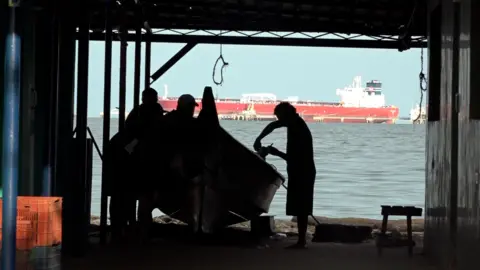 Gustavo Ocando Alex
Gustavo Ocando AlexAt the same time, attacks in the Caribbean have undermined the security of fishermen in Venezuela, says Jennifer Nava, spokeswoman for the fishermen’s council in El Bajo, in the Venezuelan state of Zulia.
Ms Nava tells BBC Mundo that people working in the fishing industry fear being caught in the crossfire between US forces and alleged drug traffickers.
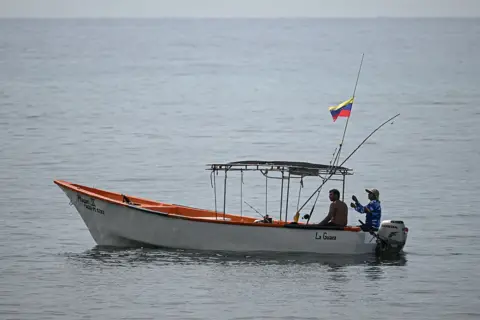 AFP via Getty Images
AFP via Getty ImagesMs Nava says the additional risks faced by poachers could drive some of them into the arms of drug and arms traffickers looking to recruit people to transport their illicit cargo.
“Some of these people are approached by traffickers,” she explains, adding that the decline of the fishing industry may make fishermen more vulnerable to these methods.
There is certainly a sense of tension among Lake Maracaibo fishermen.
Most of the crew on two small fishing boats owned by Osbaldo Albornoz refused to work when news of the American strikes emerged.
Albornoz, who has been working in the fishing industry for 32 years, describes the situation as “worrying.”
“The men didn’t want to go out to sea to fish,” he told BBC Mundo on the beach in San Francisco de Zulia, which lies on the northern shore of Lake Maracaibo where it meets the Gulf of Venezuela.
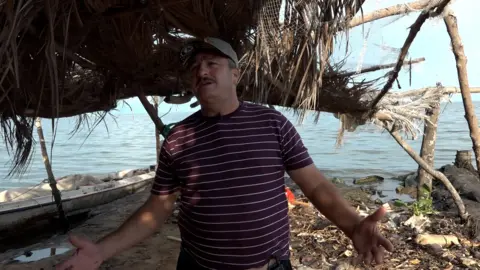 Gustavo Ocando Alex
Gustavo Ocando AlexAlbornoz explains that the fear of an American strike is the latest in a long list of dangers he and his men face, including pirates, oil spills and declining profits in recent years.
In a recently leaked memo sent to US lawmakers, the Trump administration said it had determined it was involved in a “non-international armed conflict” with drug trafficking organizations.
The White House described the attacks on boats in the Caribbean as “self-defense” in response to criticism from legal experts who said they were illegal.
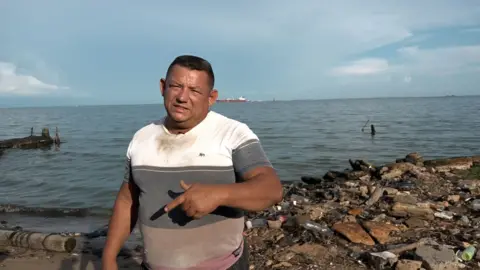 Gustavo Ocando Alex
Gustavo Ocando AlexBut in addition to the fear experienced by many, there is also a sense of challenge.
At the end of September, hundreds of fishermen on dozens of boats headed to Lake Maracaibo to show support for the Maduro government and to protest the US military deployment.
Jose Luzardo was one of them. A spokesman for the fishermen in El Bajo said they had been fishing for nearly 40 years and accused the United States of “pointing its guns at Venezuela.”
He says he is not afraid and will sacrifice his life to defend his country.
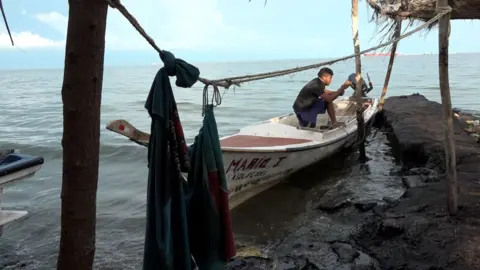 Gustavo Ocando Alex
Gustavo Ocando Alex“The Trump administration has us cornered,” he says. “If we have to sacrifice our lives to defend the government, we will, until this whole issue is over.”
He insists that what the fishermen want is “peace and work,” not war, but becomes visibly angry when he refers to the “military barrier” that he says the United States has deployed in the Caribbean.
Last month, the Venezuelan government mobilized militia members and called on those who had not joined the civilian force to do so.
More than 16,000 fishermen responded to his call, according to Fisheries Minister Juan Carlos Loyo.
Luzardo, who has been fishing since he was 11 years old, says he “will be ready for battle wherever the need arises.”
“If they are [the US] They want to kill us, so be it, but we are not afraid.”
https://ichef.bbci.co.uk/news/1024/branded_news/9e5a/live/d03aaa80-a9f6-11f0-b2a1-6f537f66f9aa.jpg










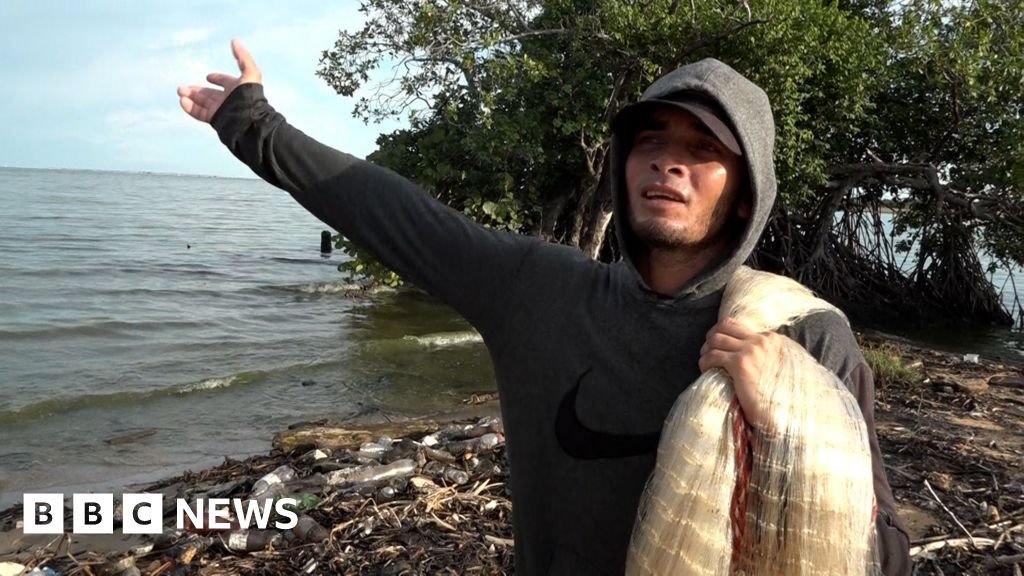

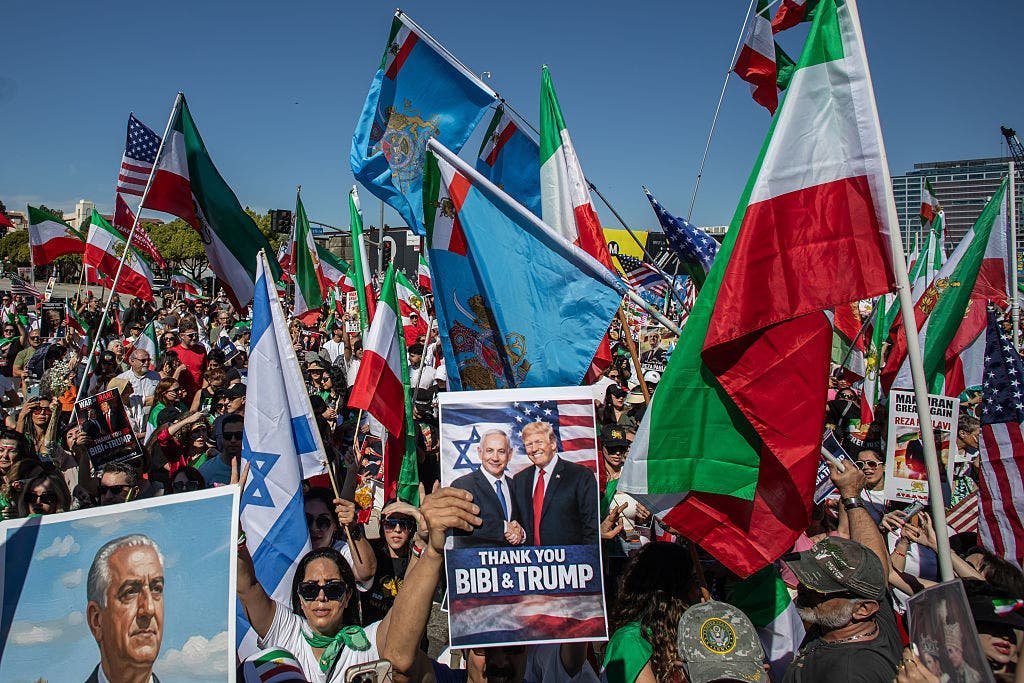
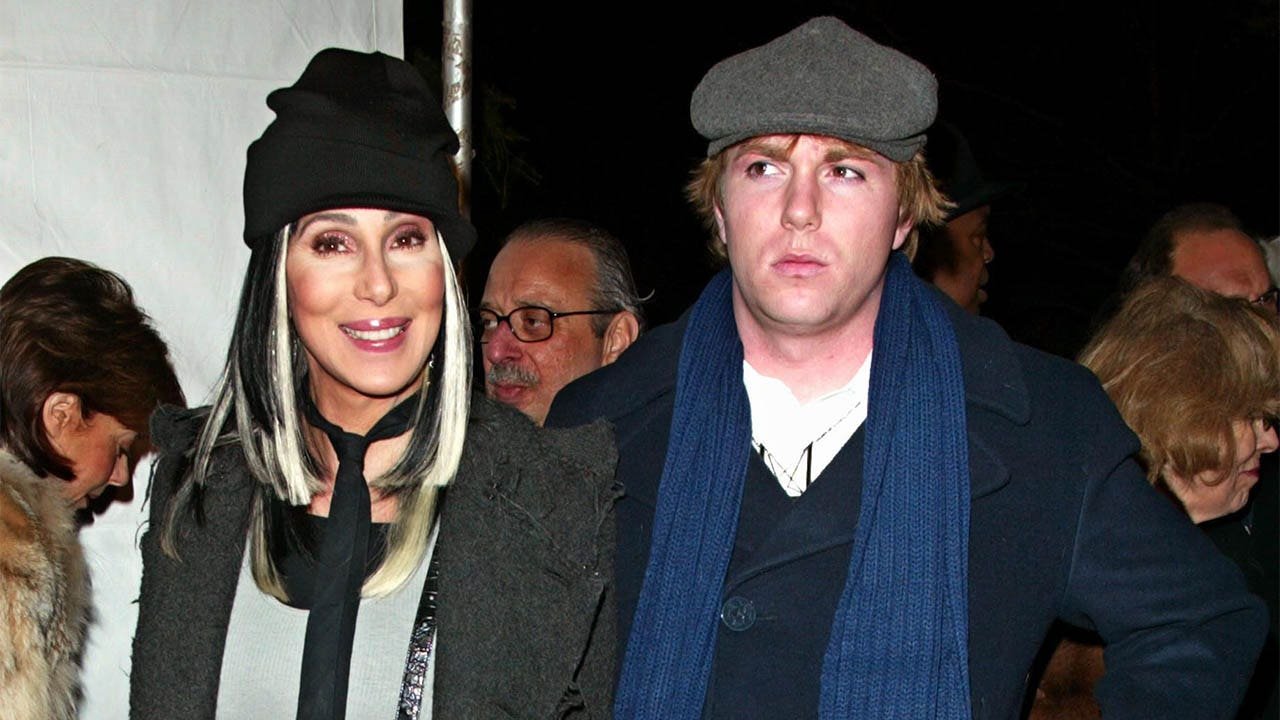
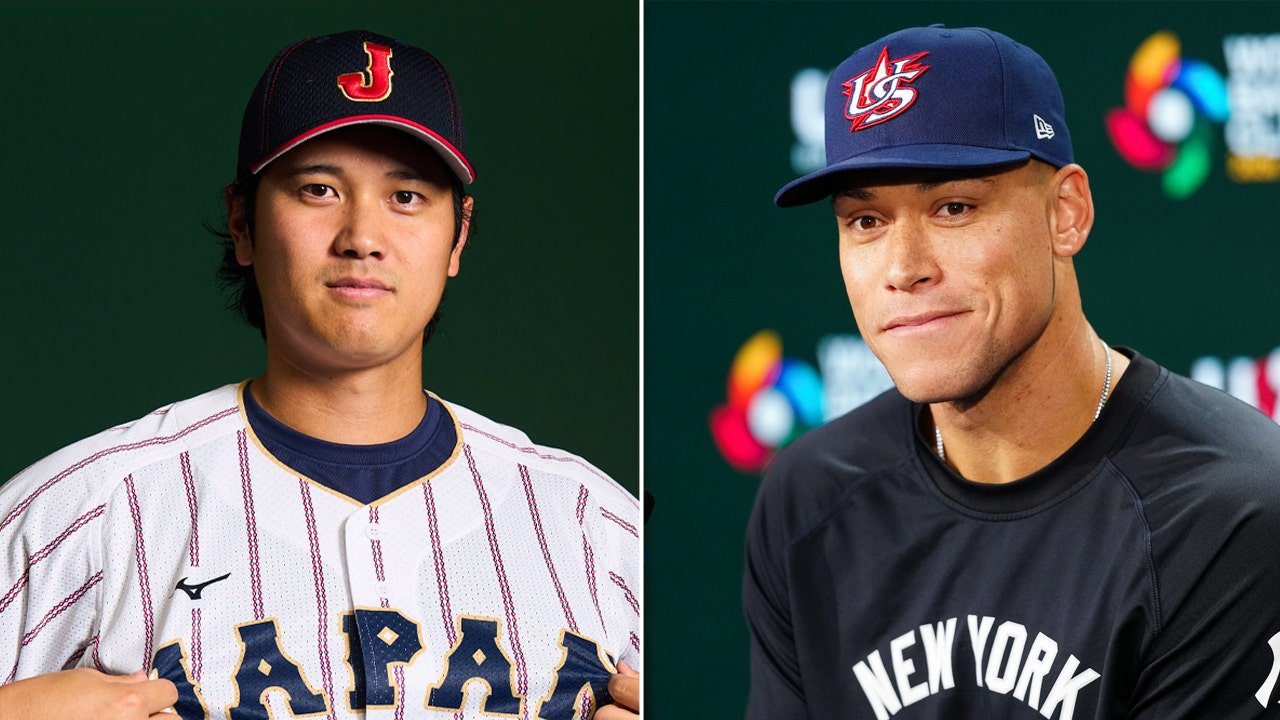
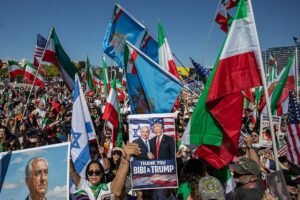

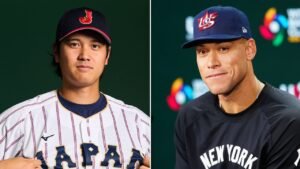
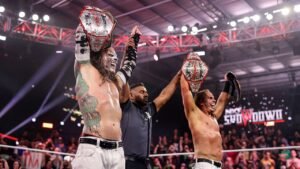


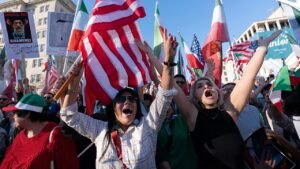
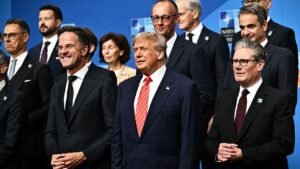
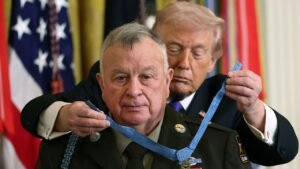
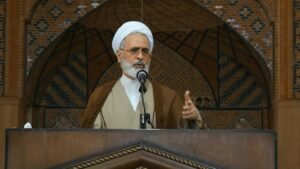

إرسال التعليق